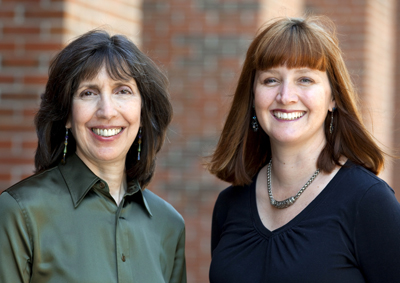
A 40-school study called Classroom SCERTS® Intervention (CSI) is under way at The Florida State University to measure the effectiveness of a curriculum designed specifically for students with autism.
The project is led by Amy Wetherby, professor in the College of Medicine and director of the college’s Autism Institute; Lindee Morgan, director of the institute’s Center for Autism and Related Disabilities; and Chris Schatschneider, professor in the Department of Psychology. They were awarded a four-year, $3 million grant from the U.S. Department of Education’s Institute of Education Sciences.
Autism Spectrum Disorder (ASD) is a developmental disability causing major social, communication and behavioral challenges. The latest estimate from the Centers for Disease Control is that an average of one child out of every 110 has ASD. That percentage is on the increase.
In the CSI project, the curriculum under study is SCERTS® (pronounced “serts”), developed in 2006 by a team that included Wetherby (www.scerts.com). It targets the most significant challenges presented by ASD, spelled out in its acronym:
- “SC” — social communication.
- “ER” — emotional regulation.
- “TS” — transactional support (developing a partnership of people at school and at home who can respond to the ASD child’s needs and interests and enhance learning).
The curriculum already is used widely with a variety of age groups, Morgan said, but this will be its first randomized clinical trial in a school setting. The project will focus on kindergarten through second-grade classrooms. The 40 participating schools will be randomly assigned to one of two groups: the SCERTS® curriculum group or what the researchers call “business as usual” programs.
“Sometimes in classrooms with ‘business as usual,’ it’s a one-size-fits-all approach,” Morgan said. “It’s not necessarily tailored to the specific child’s profiled strengths and weaknesses.”
The SCERTS® curriculum will set individualized intervention goals and objectives for the students and teaching staff. There will be ongoing feedback from the research team.
“We’ll be collecting monthly videotapes of the teachers’ implementation of SCERTS®,” Morgan said. “And there will be weekly coaching. We are hiring autism specialists who will go in and do classroom observations.”
Beginning in August, the researchers hope to have about 10 public elementary schools participating from Florida and California. Morgan said the researchers plan to have Leon, Calhoun and Volusia counties in Florida and the San Diego Unified School District in California participate in the first year, and they’re hoping to involve many other districts in Florida in subsequent years.
“We selected California in order to include a site that was very different from Florida,” Morgan said. Also, the San Diego district is interested in this research and has had some training in this curriculum.
Wetherby’s team at the Autism Institute already has $9 million worth of active projects funded by the National Institutes of Health. Wetherby received a Distinguished Research Professor Award at the FSU 2010 Faculty Awards ceremony held last month.




